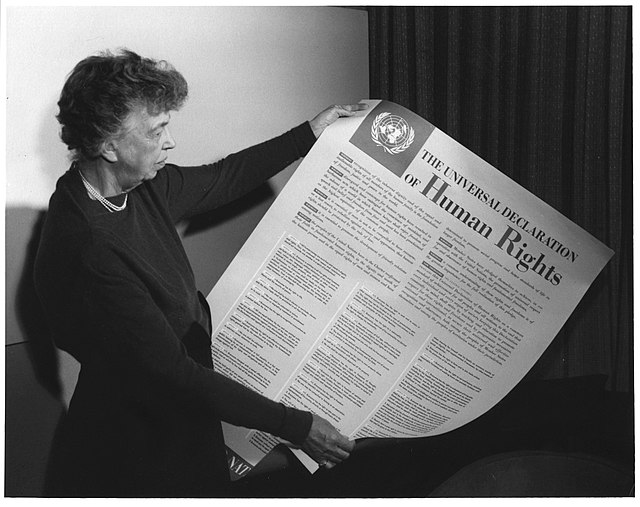Freedom of speech is a principle that supports the freedom of an individual or a community to articulate their opinions and ideas without fear of retaliation, censorship, or legal sanction. The right to freedom of expression has been recognised as a human right in the Universal Declaration of Human Rights and international human rights law by the United Nations. Many countries have constitutional law that protects free speech. Terms like free speech, freedom of speech, and freedom of expression are used interchangeably in political discourse. However, in a legal sense, the freedom of expression includes any activity of seeking, receiving, and imparting information or ideas, regardless of the medium used.

Eleanor Roosevelt and the Universal Declaration of Human Rights (1948)—Article 19 states that "Everyone has the right to freedom of opinion and expression; this right includes freedom to hold opinions without interference and to seek, receive and impart information and ideas through any media and regardless of frontiers."
Orator at Speakers' Corner in London, 1974
Permanent Free Speech Wall in Charlottesville, Virginia, U.S.
Title page of Index Librorum Prohibitorum, or List of Prohibited Books (Venice, 1564)
Freedom is the power or right to speak, act and change as one wants without hindrance or restraint. Freedom is often associated with liberty and autonomy in the sense of "giving oneself one's own laws".
Four Freedoms, a series of 1943 paintings by Norman Rockwell honoring Franklin D. Roosevelt's Four Freedoms, meant to describe the freedoms for which allied nations fought in World War II.





